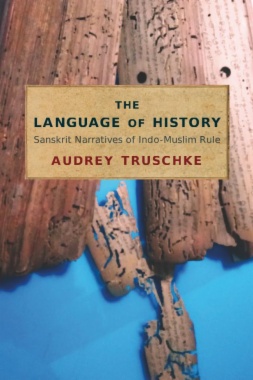For over five hundred years, Muslim dynasties ruled parts of northern and central India, starting with the Ghurids in the 1190s through the fracturing of the Mughal Empire in the early eighteenth century. Scholars have long drawn upon works written in Persian and Arabic about this epoch, yet they have neglected the many histories that India’s learned elite wrote about Indo-Muslim rule in Sanskrit. These works span the Delhi Sultanate and Mughal Empire and discuss Muslim-led kingdoms in the Deccan and even as far south as Tamil Nadu. They constitute a major archive for understanding significant cultural and political changes that shaped early modern India and the views of those who lived through this crucial period.
Audrey Truschke offers a groundbreaking analysis of these Sanskrit texts that sheds light on both historical Muslim political leaders on the subcontinent and how premodern Sanskrit intellectuals perceived the “Muslim Other.” She analyzes and theorizes how Sanskrit historians used the tools of their literary tradition to document Muslim governance and, later, as Muslims became an integral part of Indian cultural and political worlds, Indo-Muslim rule. Truschke demonstrates how this new archive lends insight into formulations and expressions of premodern political, social, cultural, and religious identities. By elaborating the languages and identities at play in premodern Sanskrit historical works, this book expands our historical and conceptual resources for understanding premodern South Asia, Indian intellectual history, and the impact of Muslim peoples on non-Muslim societies.
At a time when exclusionary Hindu nationalism, which often grounds its claims on fabricated visions of India’s premodernity, dominates the Indian public sphere, The Language of History shows the complexity and diversity of the subcontinent’s past.
- Table of Contents
- List of Illustrations
- List of Tables
- Acknowledgments
- Note on Translations and Scholarly Conventions
- Select Time Line of Political Events, ca. 1190–1720
- Introduction: Controversial History
- 1. Before Indo-Persian Rule: Many Sanskrit Ways to Write About Muslims
- 2. Difference That Mattered: Defining the Ghurid Threat
- 3. Indo-Muslim Rulers: Expanding the World of Indian Kingship
- 4. Local Stories in Fourteenth-Century Gujarat and Fifteenth-Century Kashmir
- 5. Meeting the Mughals and Reformulating Jain Identity
- 6. Rajput and Maratha Kingships in an Indo-Persian Political Order
- 7. Mughal Political Histories
- Epilogue: Starting Points
- Appendix: Select Translations from Sanskrit Histories
- Glossary
- Notes
- Bibliography
- Index

